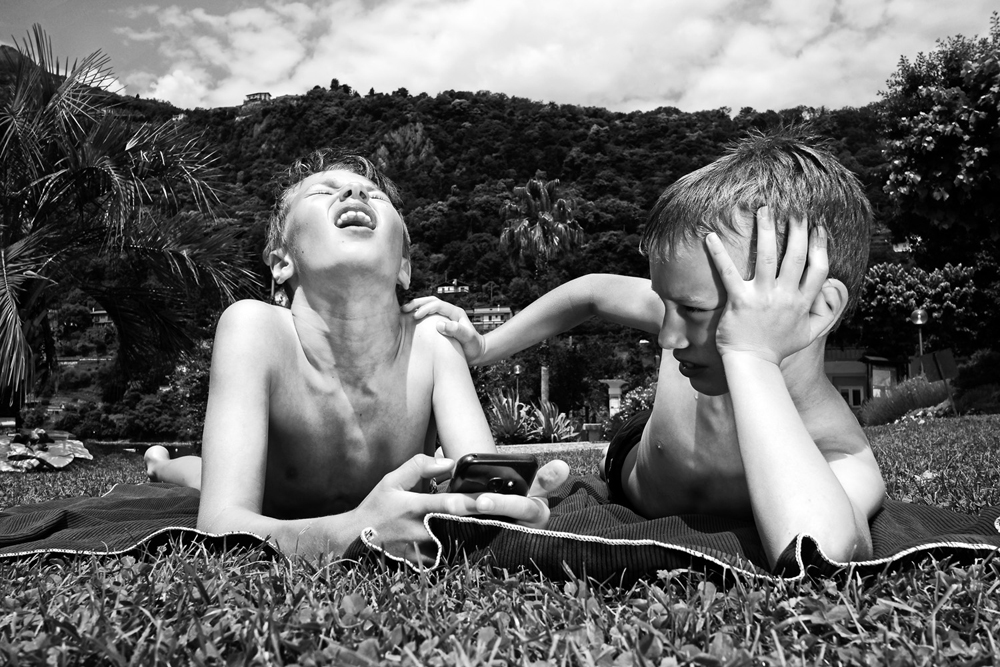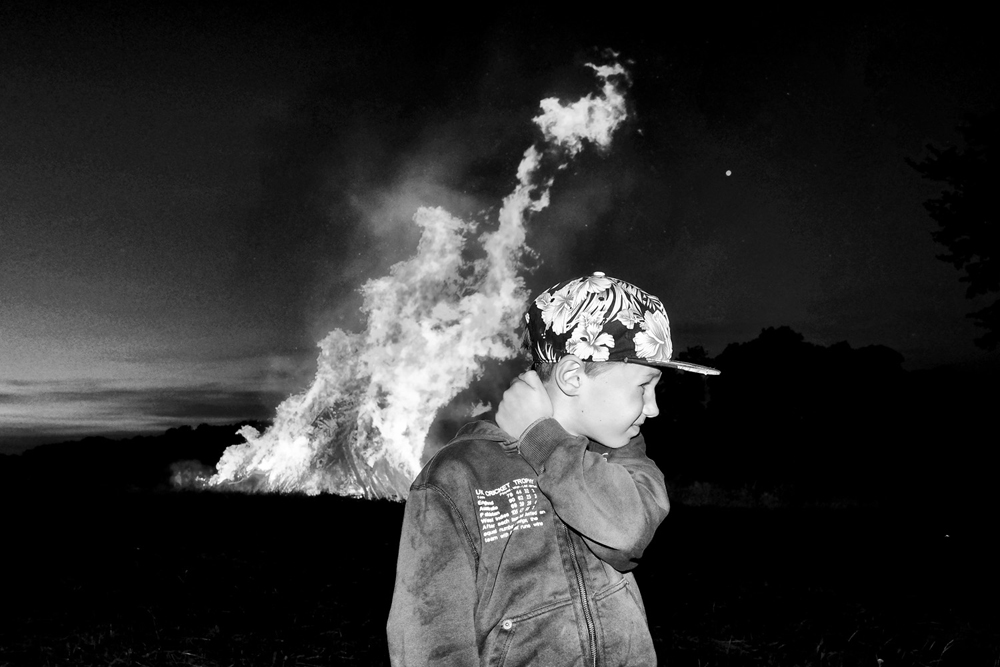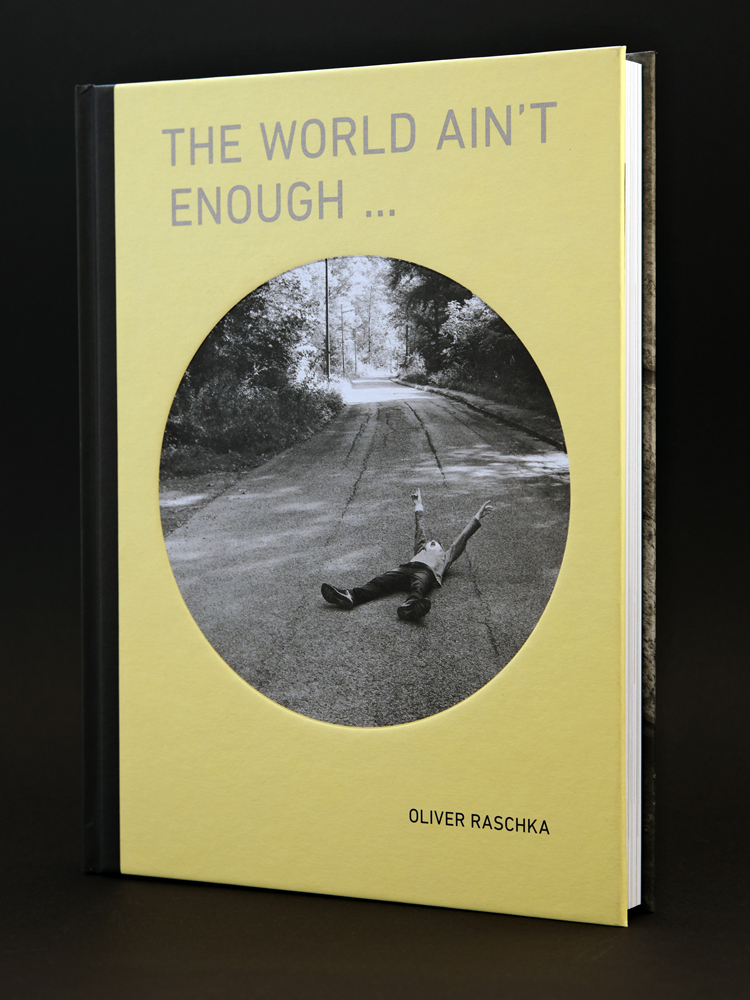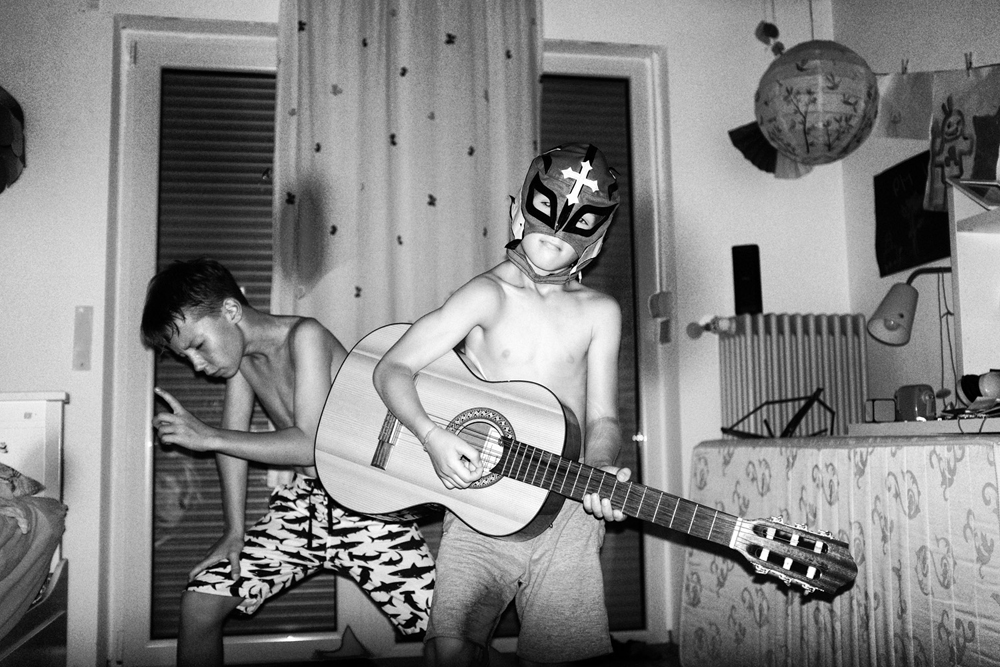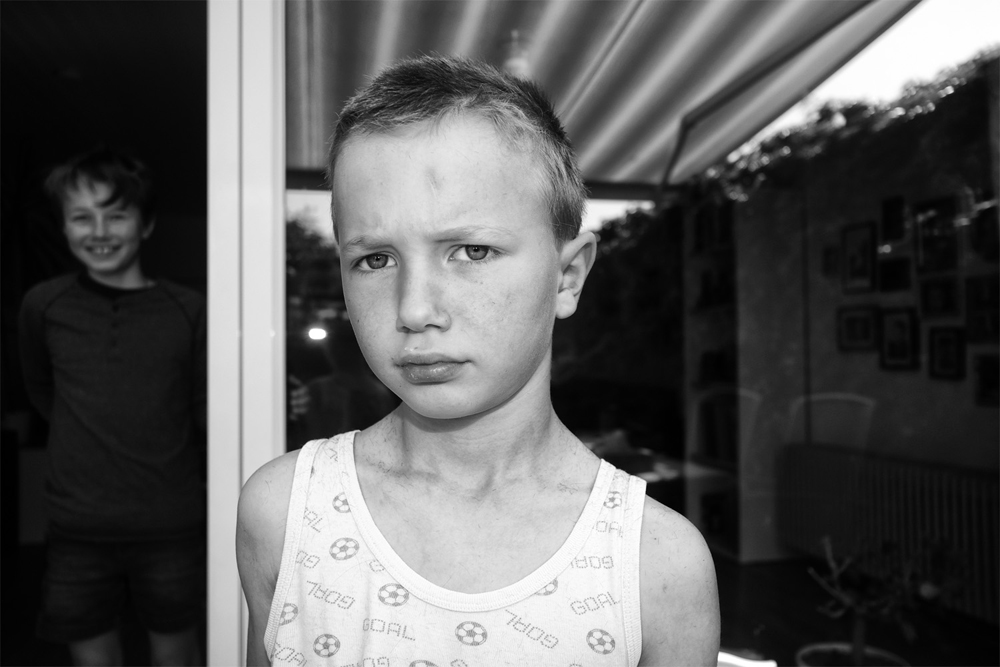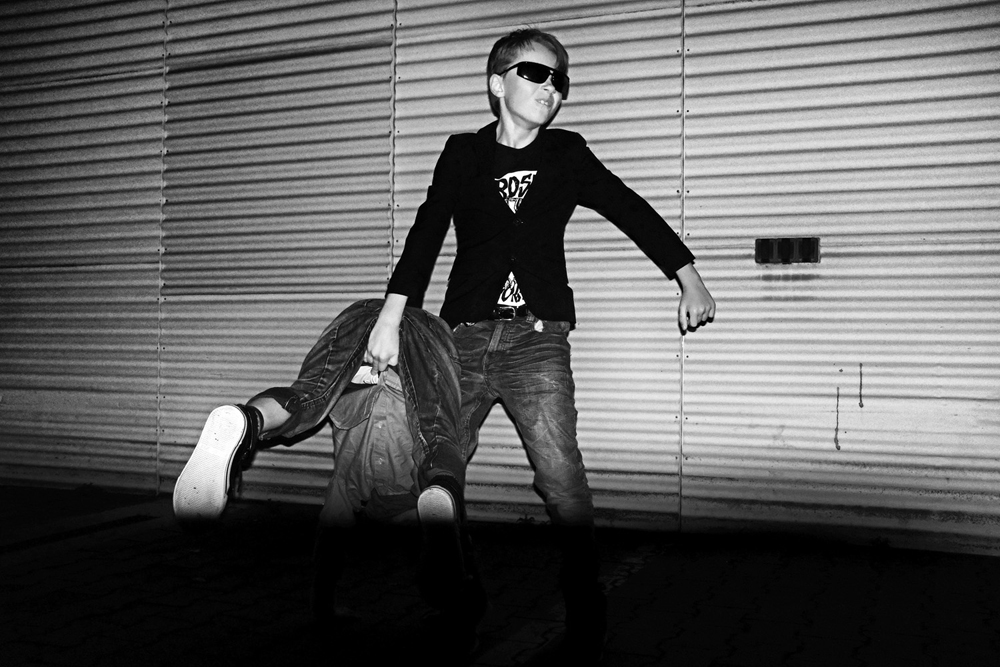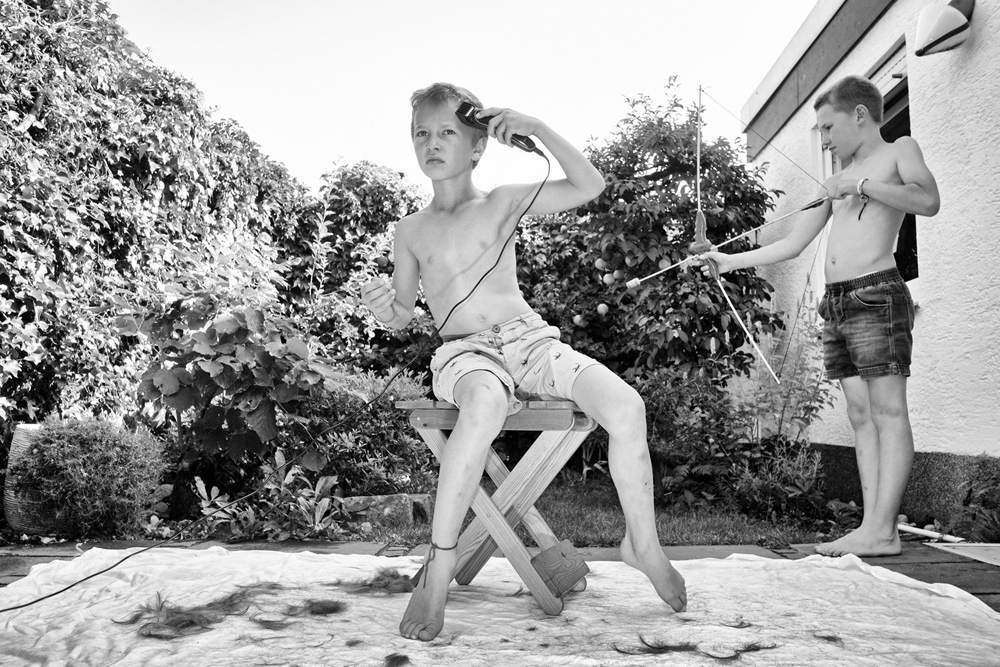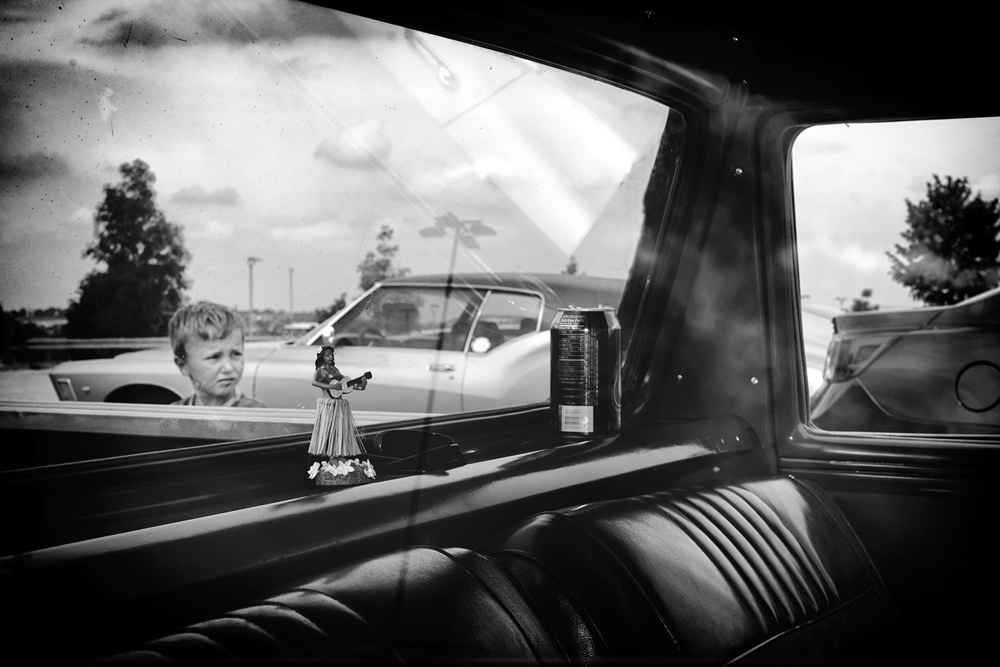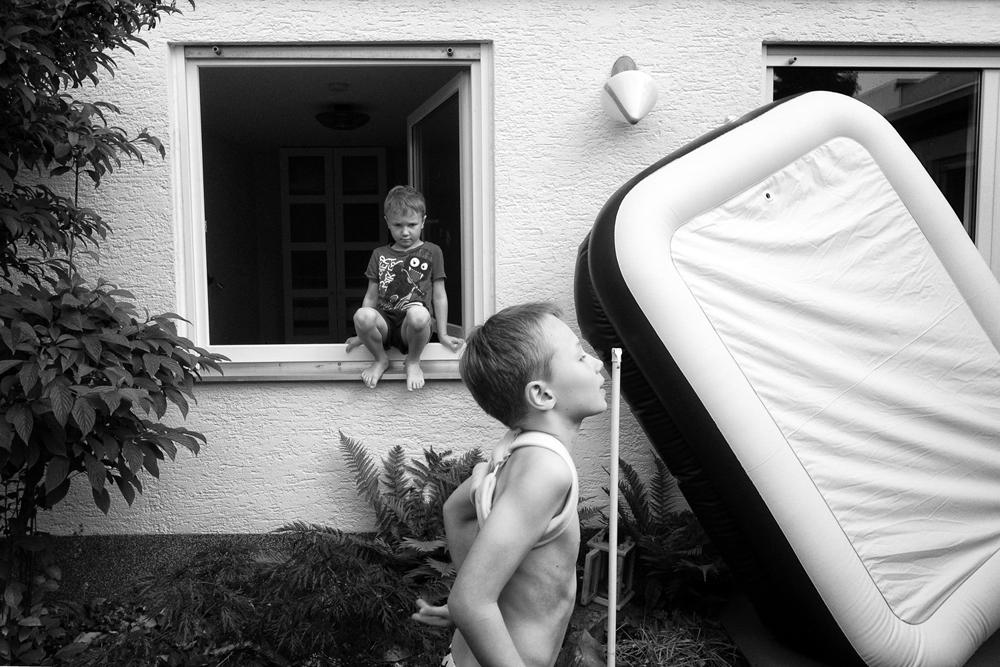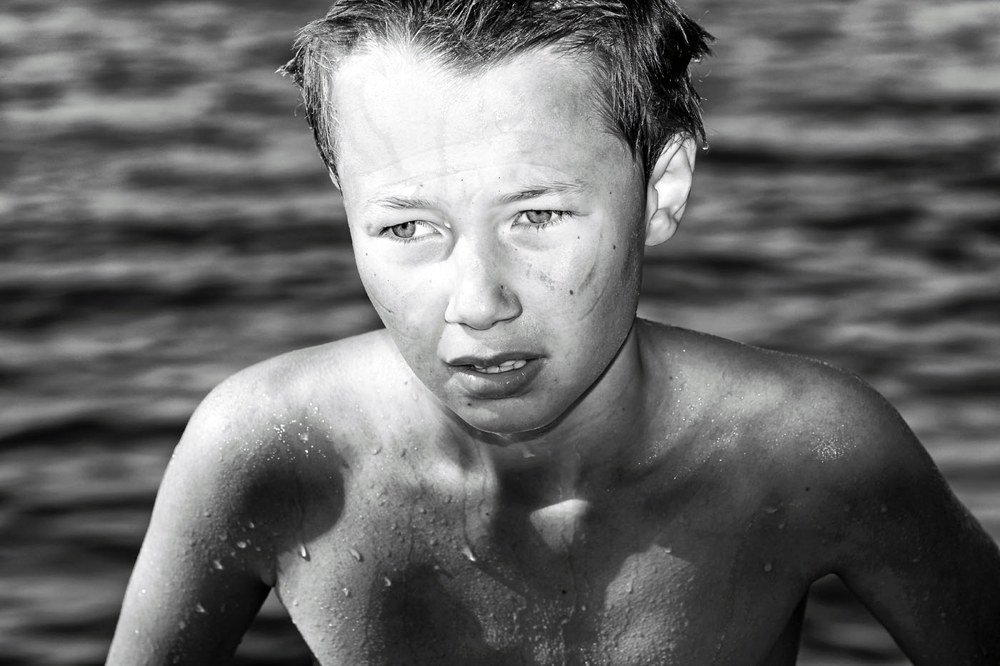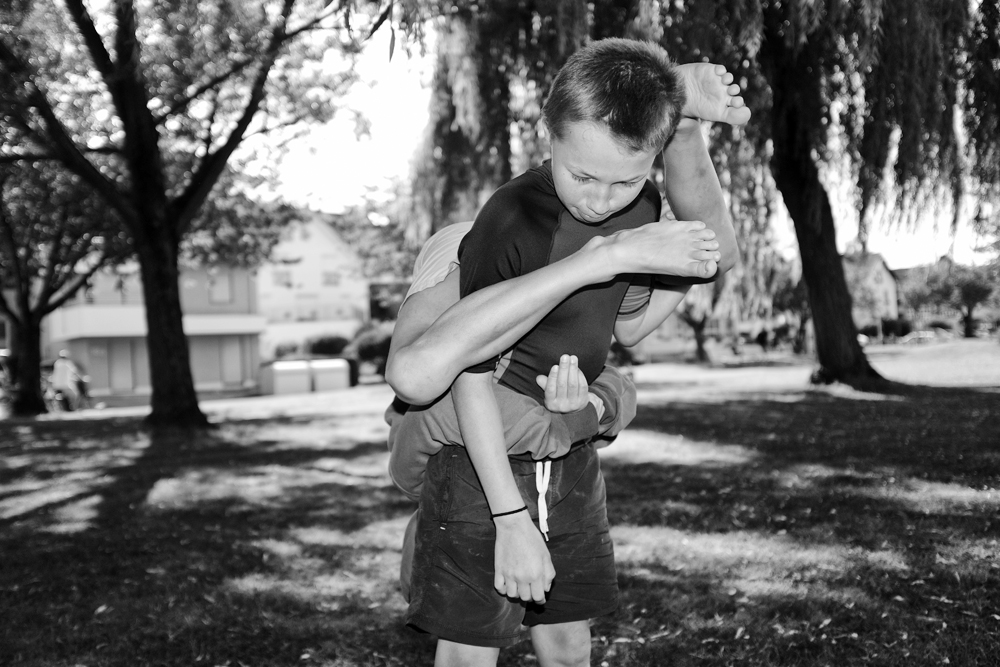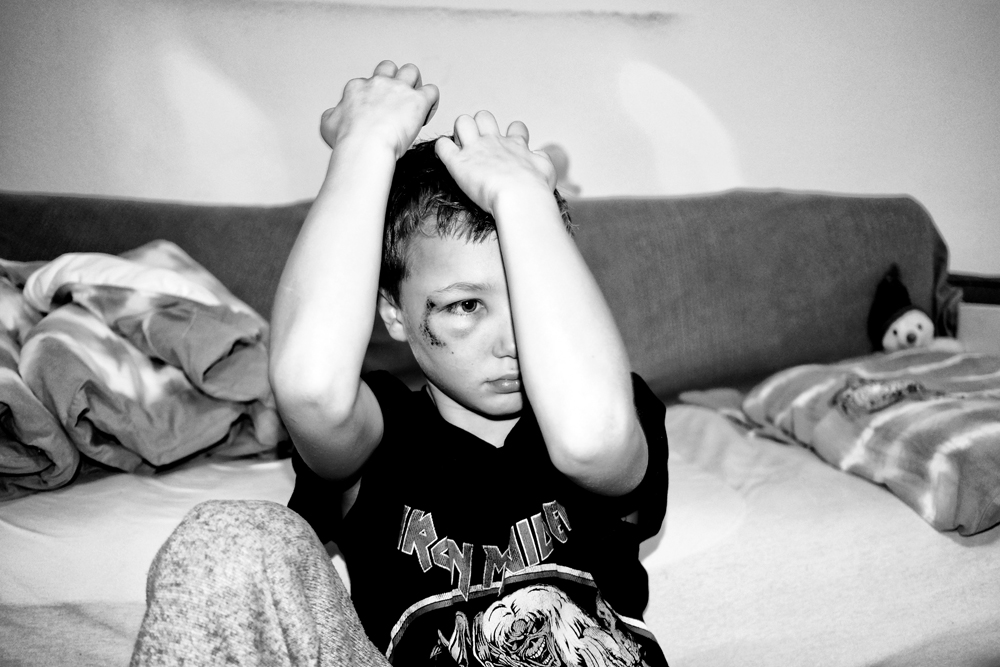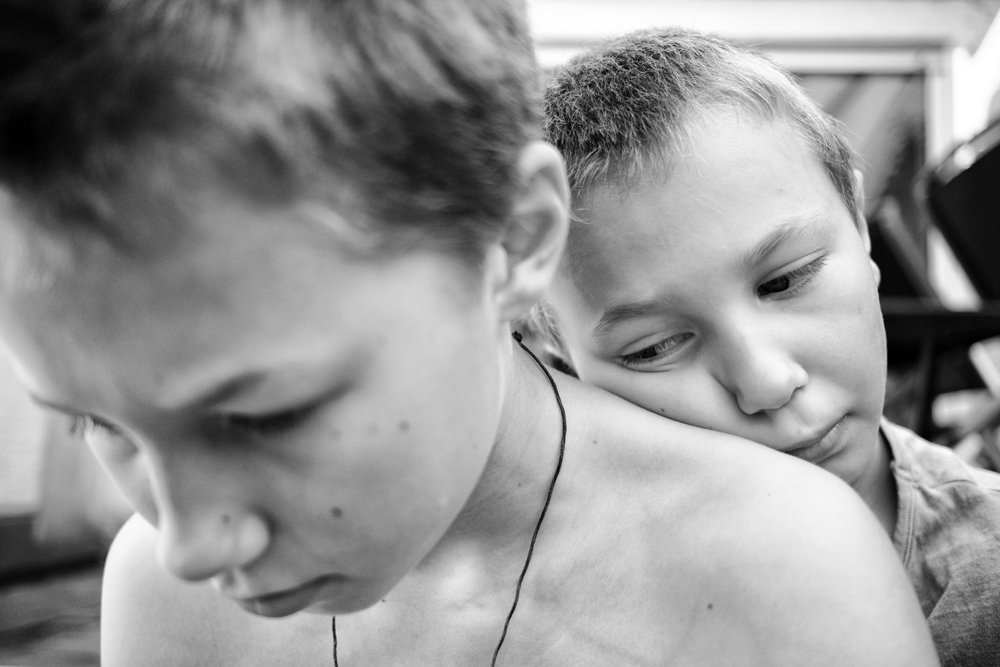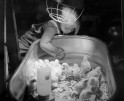Oliver Raschka: THE WORLD AIN’T ENOUGH…
Projects featured this week were selected from our most recent call-for-submissions. I was able to interview each of these artists to gain further insight into the bodies of work they shared. Today, we are looking at the series THE WORLD AIN’T ENOUGH… by Oliver Raschka.
Oliver Raschka studied and holds a doctorate in the field of behavioral economics. This helps him to capture the dynamics and specifics of social relationships in his photography. For many years, the photographic autodidact has been dealing with the subject of family and the search for his own identity, among other things, in documentary format. He loves black-and-white photography, coffee is the drug of his choice, and loud rock music is what he likes. A first book documenting the lives of his sons over a period of ten years was published in 2020 via BUMMBUMM BOOKS (Cologne). He lives with his family in Stuttgart.
His accolades include: German Photobook Prize 20|21 (Bronze), Gomma Grant 2020 (Shortlist), Budapest International Foto Awards 2002 (Gold), Der Spiegel, Kölner Stadt-Anzeiger Magazin, Schwarzweiss Magazin, Photographie Magazin, C4 Journal, AINT-BAD Magazine, Loupe Magazine, Hamburger Eyes Magazine, C41 Magazine, F-Stop Magazine, DFA Magazin, Opus Fotopreis 2017 (Award), and Seltmann Fotopreis 2014 (Award).
THE WORLD AIN‘T ENOUGH…
(2009 – 2019)
THE WORLD AIN’T ENOUGH … is about two brothers and living the moment. No staging, no posing. Just pictures from real life: at home, at play, after school, at sporting events or when out shopping. A visual sociology of childhood and life documented in a natural manner. The exultant joy that embraces the whole world and the abysmal sadness that seems to offer no escape – Oliver Raschka’s photographs of his sons touch us and stir the inner child living on within us. A father who is reliving parts of his childhood with his sons. Who reflects and knows in every second that these moments will be passing. Oliver Raschka shows the colourful and exciting first years of his sons in black and white. With great sensitivity and compassion he portrays joy, intimacy, love, anger, sadness, rivalry and wild euphoria. The viewer participates in the rapid developments of the first years of life of his two boys, their brotherhood and takes part in the wild ride into puberty. The viewer is right in the midst of it and conquers the world alongside with the kids.
A book with the same title THE WORLD AIN’T ENOUGH …, which documents the first ten years, was published in 2020 via BUMMBUMMBOOKS, Cologne. It has received critical acclaim (e.g. German Photobook Award, Der Spiegel).
Daniel George: What made you want to photograph your sons? And at what point did you realize that a project was in the works?
Oliver Raschka: I’ve always been interested in analyzing human behavior. That was also the reason why I focused on behavioral economics as a student. Today, this helps me to capture the dynamics and specificity of social relationships in my photography and to better anticipate fleeting moments so that I can capture them. In general, I’ve been working on the theme of family and the search for my identity in documentary form for many years.
The boys are an essential part of my life. I started taking pictures when the children were born. But it wasn’t until my mother passed away in 2012 that the project really started to move forward. My life was in constant flux, taking on new meanings in rapid succession. Since then, I’ve been thinking deeply about life and death. Today, I’m taking a closer look at my own transient life. For me, this is not just about photography as art, but eventually, as an adult, I’m searching for a clue to the meaning of my life. My children remind me of my own childhood as a boy, my relationship with my father and what is lost in the transition from boy to man. It’s all about framing identity and to experience childhood myself once again.
When I began to photograph the boys, I didn’t have a book in mind. I was soon sure that it would become a project. But the idea of the book came much later. It was only six or seven years after I started that I published my first photographs as a series in several magazines and wrote a short text about it in order to become aware of what I actually had there as a story. In parallel, I’ve always been active and attended portfolio reviews and courses to develop as a photographer. Then in 2018 I went to several festivals with a photobook dummy and received very encouraging feedback. Bringing the project into book form then also seemed thematically appropriate. In the end, however, I gave myself time so I wouldn’t rush into anything. I continued to photograph, edited image sequences and looked for a suitable publisher.
At the same time, I also photograph the extended family and our friends in the same style. Over the years, this has also resulted in impressive narratives. But that’s another story.
DG: How did your kids respond to being photographed? I’m curious if at any point they became aware of their performance, and if that was something you then had to mediate. Or do you feel that their self-awareness plays into some sense of authenticity?
OR: Since I take pictures from the beginning and generally always have a camera with me, the boys don’t know otherwise. In the past, I haven’t felt any interruption in the boys’ playfulness or any particular tendency to stage or pose. When I show the photographs after days or weeks and we talk about them, the boys very often ask when and where that happened. In this respect, I’m met with indifference when taking pictures, respectively I’m not even noticed. Because I don’t want to interfere with the children’s behavior, I behave discreetly and work quickly and quietly. I benefit from the fact that I work with a small camera equipment. The bulk of my work is photographed with a 35mm prime lens. So, I can concentrate on the moment and an intriguing framing. Furthermore, I naturally know my subjects very well and can anticipate in advance when an interesting situation will arise that needs to be captured in a natural manner. At the same time, however, I usually only have time for one or two shots, and then the moment is already gone.
DG: Why do you feel it was important to depict a range of emotions, including those that you mention: “joy, anger, sadness and wild euphoria?“
OR: There was no plan to depict certain emotions. I don’t determine the situation by staging. I just respond with my camera to what I see in front of me. Finally, I saw the range of emotions and their stories only when I began to edit the images into a series. Then I just tried to put into words what the pictures were showing.
In general, I try to be empathetic, to connect with the subjects and to perceive the situations in an unbiased way. I guess I look for myself in the subjects and my photography. This is independent of the nature of the emotions and the circumstances. I might have felt the boys’ emotions as a boy in similar situations as well.
DG: You published a book that documents the first ten years of your kid’s lives. Are you going to continue to work in this vein? And if so, how will it change or evolve?
OR: At a certain point in 2019, I realized that the boys were changing significantly and had now reached puberty, especially the older one. The wild, playful drive was no longer dominant. This was also visible in the photographs. At the same time, I had already been in a phase for months in which a lot was changing in my health and professionally. After we took a longer time out in Sweden, I began consistently to edit the dummy and to realize the book. To close the first ten years and thus the childhood as a chapter felt consistent to me.
While the book was being prepared and published, I continued to take photographs for the ongoing series SERIOUSLY MYSTERIOUS. There was no break in the documentation. So, the work now differs from THE WORLD AIN’T ENOUGH … primarily in the motifs and circumstances of the changing everyday life through school, friends, and the pandemic. For example, smart phones and tablets, clothing style and skateboards are now much more present in the photographs. In general, SERIOUSLY MYSTERIOUS deals with the times of upheaval, the phase of being in-between. The tween years as a transitional period to adolescence is a very intense phase in the lives of the two boys. If their own puberty weren’t enough of a challenge, the drastic change caused by the pandemic intensifies their feelings of isolation, excessive demand, transition and rebellion. Moments of joy, exuberance and self-determination gain greatly in importance as a result. Above all, however, I’m fascinated by the facial expressions in the photographs, which reflect the immediate emotional condition of the boys. Furthermore, the relationship between the brothers also changes, in which each increasingly goes his own way with his respective hobbies and friends. In general, the situations I try to capture are no longer so lively and hectic. This now allows me to work in medium format. I try to capture portraits more often. But this is still done intuitively, quickly and discreetly, so as far as possible unposed directly out of the situation
As a bracket of this tween time, I can also imagine a book very well. First thoughts about this already exist.
In general, I hope that I can continue the documentation of the boys as long as possible, always assuming the permission of the boys and my wife.
DG: Photographing kids can be tough. Certainly your approach to “no staging, no posing“ simplifies the process to a degree, but still. What motivated you to keep working on this throughout the years, and what might others embarking on similiar work glean from your experience?
OR: Yes, that’s right. Photographing children – whether your own or someone else’s – is tough. You have to be very fast. Everything has to be right. You don’t have a chance to get the moment back, especially if you photograph in a candid and natural manner.
The motivation ultimately comes from the fact that as the children grow, new motifs and interesting situations always arise and I continue to develop as a photographer and a person. At the same time, I can relive my own youthhood. In this way, new perspectives always arise to capture everyday life in impressive photographs and thus create a unique and special testimony of growing up.
Every photographer is looking for his own special and unique project, where he can best contribute and is familiar with the circumstances. This one is mine. Only I have this specific insight into the lives of the boys and their relationship. I use this as an advantage in my work.
Another experience I’d like to share is to follow an intuitive approach. I try to capture exactly those natural behaviors that are closest to the beings of my sons or of my friends. I’m also less concerned with the “temptations” of foreign and exotic places on vacation or sensational images. It is the everyday that define our lives and that I want to capture. As a photographer, it’s important to me to find the extraordinary in the ordinary and to show new perspectives on the familiar. In a positive sense, the photographs show unfiltered insights into the ordinary life of two children and their family, but at the same time the photographs are universal.
Furthermore, I recommend separating the roles of the photographer and the parent when taking pictures to ensure cliché-free and unbiased images. But finally, the greatest happiness as a father is to be part of the family and to be able to participate in this long-term experiment called family. Photographing this experiment is the bonus.
One last advice: Please discuss the photographs with your kids. Print them out, hang them on the wall and talk about them. Believe me, you will get the most honest thoughts about them you can get on earth. Kids are very good at discovering what works and what doesn’t from different perspectives. Getting feedback from your kids (and your partner, of course) on how they see the world will help you grow as both a photographer and a parent. But even when it comes to publishing the photographs, it’s important to discuss them with your family, even when the kids are young. At the same time, it’s also a great, because it’s concrete and personal, way to educate the kids about (social) media. This kind of work is not only personal, it is also private. So, you should decide which photographs you want to share (at that time) or not. And the context in which the images are shown is crucial. I have many photographs that I really like as a photographer, but as a father I refuse to share them because they are too intimate. Set the boundaries – as a family. It should be a joint decision.
SERIOUSLY MYSTERIOUS
(2019 – ongoing)
These are now the times of upheaval, of being in-beTWEEN. No one said it would be easy. Neither for the youth nor for their parents. The weird sounds of puberty have long since drowned out the playful melody of childhood. The daily life of two tween brothers can be so serious about life, but also so mysterious and full of new impressions, with no idea why anything happens the way it does. Body, mind and emotions struggle for supremacy and there is no predicting where it will end. As a photographer, Oliver Raschka depicts the everyday life of his now tween sons with great sensitivity. If their own adolescence were not enough of a challenge, the drastic change brought about by the all overshadowing pandemic intensifies their feelings of isolation, excessive demand, transition and rebellion. All at the same time. Moments of joy, exuberance and self-determination gain greatly in importance as a result. Oliver Raschka frames identity and experiences youthhood once again, in tense times.
SERIOUSLY MYSTERIOUS, an ongoing series that began in mid-2019, documents in a candid and natural manner the tween years of two brothers during challenging times. No staging, no posing, just everyday moments of youthhood. A visual sociology captured in striking black and white photographs. A book is in preparation.
Posts on Lenscratch may not be reproduced without the permission of the Lenscratch staff and the photographer.
Recommended
-
2025 What I’m Thankful For Exhibition: Part 2November 27th, 2025
-
2025 What I’m Thankful For Exhibition: Part 3November 27th, 2025
-
2025 What I’m Thankful For Exhibition: Part 4November 27th, 2025
-
Nancy E. Rivera: No Present to RememberNovember 22nd, 2025
-
Astrophotography: Molly WakelingNovember 6th, 2025

